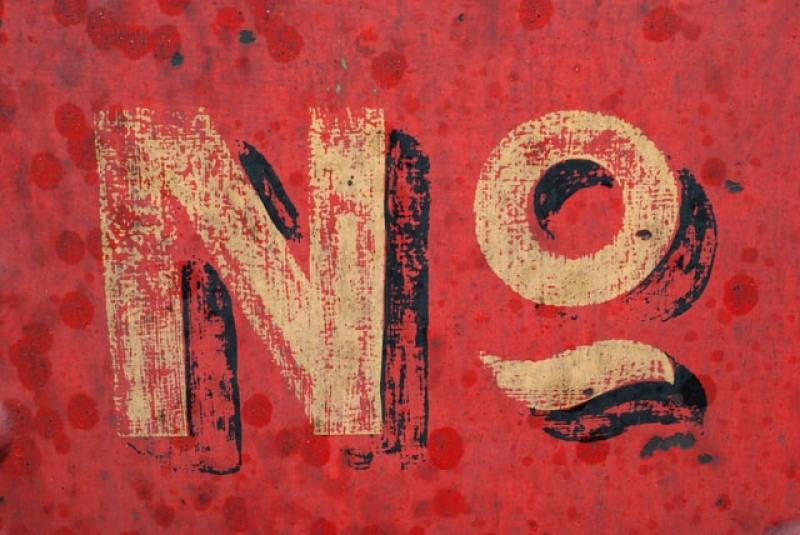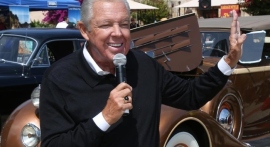
An ethics professor in Canada has excellent things to say about the government's clear overreach in terms of the COVID-19 response, which she shares with her audience.
Dr. Julie Ponesse, former ethics professor at Huron College University in Canada, joined The Faith and Democracy Series on Oct. 28, 2021.
To begin, she defined ethics as "the right to determine what shall or shall not be done with one's own body and to be freed from non consensual emotional treatment." Dr. Ponesse noted, however, that they were the words of Ontario Court of Appeal Justice Sidney Robins.
She said that, with very few exceptions, each individual's body is regarded as protected under Canadian law.
"I should almost just stop there," she said. "And this is the underlying ethos of the Nuremberg Code, a promise to humanity that we would never again endorse uninformed, non voluntary medical decision making even for the patient's own good for the sake of the public."
As for the COVID shot mandates, by definition, she said that they are a "coercive nuclearization strategy."
"In the absence of coercion, threats of the loss of employment, for example, people will voluntarily agree," she said.
Autonomy and the public good
Dr. Ponesse explained that the Parliament and provincial legislatures have a "limited power" to make legislation that breach specific Charter rights for the purpose of the public welfare in the event of a crisis.
In order to justify these infractions, she said that the COVID-19 would have to be a very dangerous virus for which there are no cures. In addition, vaccination efficacy must be shown.
The present situation in Canada, however, none of them has a death rate comparable to smallpox, and it provides even less of a threat to children. In and of itself, she argued, is enough of a reason not to pass the mandate.
Furthermore, there are a lot of safe and extremely effective medications to treat it, including monoclonal antibodies. To round things off, these experimental shots have been linked to more deaths and serious side effects than any other in the previous 30 years.
"In light of these facts," she continued, "I have so many questions."
"Why are the vaccinated granted vaccine passports and access to public spaces when the Director of the CDC has stated that the COVID-19 vaccines cannot prevent transmission?"
"Why is vaccination the only mitigation strategy when emerging evidence, including a recent Harvard study-this is in September of this year, shows no discernible relationship between the vaccination rate and new cases, no discernible relationship at all?
"India surpassed Canada in health care. Why are we about to vaccinate five-year-old's when COVID poses less risk to them and the potential vaccine reactions, and while there is no effective monitoring system for the vaccine? "
As multiple publications reported, the Indian state of Uttar Pradesh provided ivermectin to its 230 million residents, thereby lowering the COVID mortality rate to almost zero.
"Why are we focused on the narrow benefits of vaccine induced immunity when real world studies show natural immunity is more protective for closing?"
"Why do we shame the vaccine hesitant and not the vaccine adamant? Why, as a nurse recently asked, do the protected need to be protected from the unprotected by forcing the unprotected to use the protection that did not protect the protected in the first place? "
Consequently, she said that, "It's my observation that we are facing a pandemic not just of a virus but a pandemic of compliance and complacency in a culture of silence. Censorship and institutionalized bullying."
The time for civil disobedience
Dr. Ponesse did not dispute the existence of COVID-19, and she acknowledged that it is the greatest threat to human civilization.
"Not because of a virus. That is just one chapter of a much longer, more complex story," she clarified. "But because of our response to it, and that response, is, I believe, earning its place in every single medical ethics textbook that will be published in the next century."
She quoted Canadian chemist and author Orlando Battista, who said that "an error doesn't become a mistake until you refuse to correct it."
Thus, to counteract the spread of falsehoods, she offered a few ideas.
She noted that when a concept is embraced by only 10% of the population, it becomes a "tipping point" that quickly spreads to the rest of the population.
"A vocal and noisy 10% is all it takes," she said.
She also urged people to get in touch with their elected officials and write to their local media.
"Now is the time to protest. Now's the time to challenge and even disobey our governments, " she said.
"You don't need a tribe of heroes, a mass of heroes, a country of heroes. You only need one. You can do your part, and you can make a difference, " she proclaimed.






























